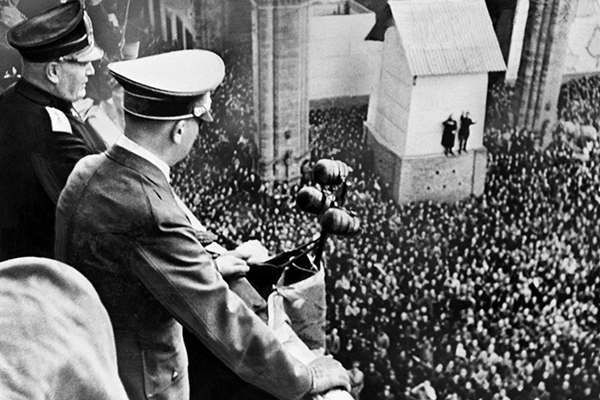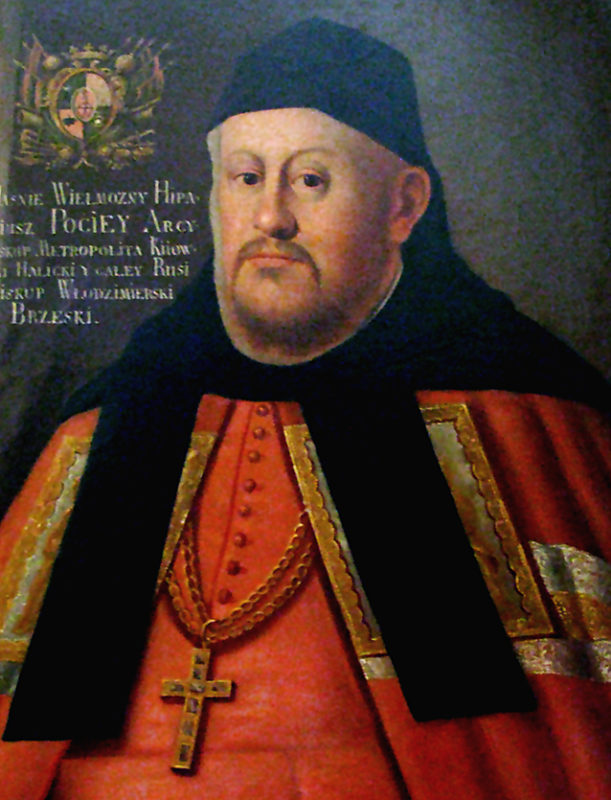The cynicism of Machiavelli’s “The Prince” was criticized by many ruling contemporaries – they were afraid that such an unveiling of the “backstage of rule” might become a weapon against the rulers.
Editor’s note: Fascism is coming back. If we won’t remember how it came about last time, we won’t be able to recognize it returning to Europe months from today. We will vote for them and when our palms will become sweaty from the realization who we brought to power, it will be too late. Ukraine is just the first step. The migrant crisis in Europe, the relatively large social benefits paid to refugees, together with the difficult economic situation in half of EU countries, will inevitably cause protests in these countries. The discontent of the protesters will be used by far-right and extremist parties. These fascist parties will promise to “solve” the migrant crisis to gain the votes of the protesting masses in the elections. What will they do to the population that elected them? We must profoundly understand what fascism is to call out the politicians who will try to manipulate us into falling for their lies in the nearest future.
The theory of elites (which is sometimes called sociology of rule, theory of social stratification, etc. to avoid the word “elites”) came about as an independent sub-discipline only in the 19th century and was further developed in the 20th century.
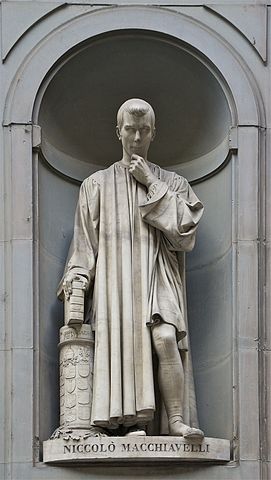
There were, of course, quite ancient treatise on social governance – up to detailed guidance regarding the rights and responsibilities of castes and estates. The whole world, however, recognizes the XV-XVI century Florentine politician and philosopher Niccolo Machiavelli as the main precursor of the theory of elites. In his treatise, “Discourses on the First Ten Books of Titus Livy” and “The Prince” he had studied – almost four centuries before scientific sociology – the range of problems later studied by the sociology of rule.
At the same time, Machiavelli, discussing the actions of the ruler, openly counterposed the moral norms (blessed by religion), human laws (blessed by the tradition) – and the political expedience for the ruler himself and the state he governs. Machiavelli stated that political expedience is more important than morality and law, and that the ruler may and must neglect everything, but the success of ruling. Despise the plebs, lie to his neighbors and subjects, betray allies, break the laws, show little grace and much cruelty, instill his subjects not only with love, but first of all with fear.
The time, of course, was very cruel – with most of Italy’s territory captured by neighboring countries, with regular coups, betrayals, wars of city-states with one another. And Machiavelli thought that all cynicism of the ruler might be justified by the goals of putting an end to foreign invasions, domestic wars, turmoils from below and in order to create stable statehood.
But the cynicism of “The Prince” was criticized even by many ruling contemporaries. And not for cynicism itself – ruling families, such as the Medici and Borgia, had enough cynicism of their own. They were simply afraid that such an unveiling of the “backstage of rule” might become a weapon against the rulers. It is no accident that Vatican included “The Prince” in the banned book Index after Machiavelli’s death.
Machiavelli, however, paid no attention to the critics and claimed that the reasons of state justify the cynicism of the ruler by stopping the turmoils. At the same time he specifically noted that one cannot rule without the support of the masses. And that the ruler, despising, lying, tricking, punishing the masses must nevertheless maintain their support.
In this sense, “The Prince” is not just a treatise on elite theory, but also one of the first practical guides to what is now called political technologies – the ways in which the elites control the masses based on human inequality. I want to note that it is no coincidence that one of the most famous Russian political consulting companies is called “Nikkolo M”.
The theory of elites was actively developed by many sociologists at the turn of the 20th century: by Gaetano Mosca, Vilfredo Pareto, Robert Michels, Gustave Le Bon, Georges Sorel and others.
However, the alliance between the imperialistic bourgeoisie and the ancestral aristocracy picked only the most important of their conceptual developments for its attack against communism, equality, liberty, fraternity:
- justification of eternal existence of human inequality;
- counterposing the elite and the despised masses, the crowd, the “human trash” (the reader, I hope, will remember the current Russian Bolotnaya discourse on difference between “dolphins and anchovy”, “bees and flies”, “the right of the creative class” and so on) (Yury Byaly refers to the way the leaders of the failed Russian maidan of 2011-2012 speak of the majority of the Russian population after the majority openly spoke against the maidan, referring to the majority as ‘worthless flies’ and ‘anchovy’, slaves, calling it ridiculous to compare them to the minority of free and noble ‘bees’ and ‘dolphins’ of the maidan – in essence, counterposing the ‘elite’ minority and the despised majority – Editor)
- political technologies of combining the “control over the despised masses” with maintaining the support of these masses.
What ideas which might have been useful for an attack against the “Red” forces and liberals with their calls to equality did the works on elite theory say?
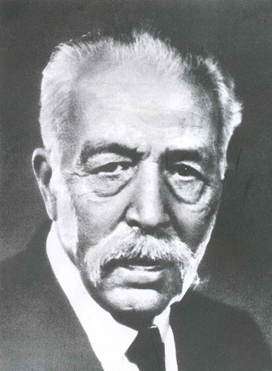
G. Mosca in his work “Elements of Political Science” (1896) noted that the elite (“the political class”) in all ages had the right and responsibility to rule over the masses based on such qualities as moral, intellectual and financial supremacy, and, as a result, the ability to control the people. Among the most important listed qualities of the elite, Mosca puts special emphasis on the organizational abilities (and first and foremost the ability to self-organize): “An organized minority inevitably imposes its will upon the disorganized majority”
Mosca has also pointed out that the main threat to the elites is not the masses, but an alternative organized minority striving to power (what was later called the ‘counter-elite’), which, in case of degeneration and weakness of the ruling elite engages it in a political conflict and becomes the new elite: “One might say, indeed, that the whole history of civilized mankind comes down to a conflict between the tendency of dominant elements to monopolize political power and transmit possession of it by inheritance, and the tendency towards a dislocation of old forces and an insurgence of new forces“.
At the same time, Mosca, arguing with Marxism, emphasized that politics is paramount, not economics. He claimed that it is the realization of political power of the organized elite minority over the disorganized majority of the masses that allows for unconditional economic dominance. Let us note that Italian (Mussolini) and German (Hitler) fascists armed themselves with this idea of Mosca. They have come to power with the support of the bourgeoisie, after which they have quite harshly suppressed the bourgeois economic leaders in their countries.
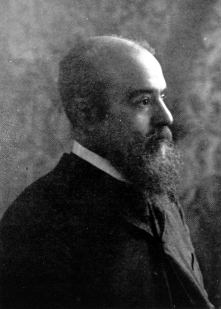
V. Pareto has voiced his conviction in his works (specifically, in “Socialist systems”, 1903) that deep inequality is inherent to humans: “The fact is that human society is not a homogeneous thing, that individuals are physically, morally, and intellectually different.” The elite, being superior in these qualities as compared to the mass of the people, stands out with its psychological capability to rule over others.
However these qualities of the ruling elite are not absolute: it starts making mistakes (degenerates, loses its qualities of superiority) and throws the society and the state off the political, social, economical equilibrium. And then it is gradually or revolutionary replaced by the new ruling elite and the cycle repeats itself, meaning, the “rotation of elites” takes place. Pareto writes: “The aristocracy decays not only in quantity, but also in quality… The ruling class is restored in numbers and in quality by families from the lower classes… History is a graveyard of aristocracies.”
At the same time Pareto notes that the main defect of the governing elites leading to their loss of power is their inability to grasp in time those demands of the reality which create the necessity to change the methods of organization of the masses and social governance. He was the first to formulate the most important notion of the theory of social governance – “the resource of the consent of the governed” (based on the ability of the elites to convince the masses that the elites are right). He also emphasized (based, in many ways, on Machiavelli) the importance of the manipulation of the masses through emotions when it comes to the elite rule: “The more successfully the policy of the government uses the emotions of the crowd, the more effective it is“. This conclusion of Pareto was successfully used by fascists in their propaganda.
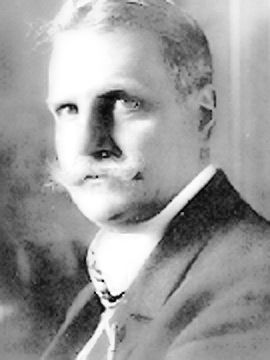
R. Michels started his sociological research as a socialist. But later, having come to a conclusion that “the direct rule of the masses is technically impossible“, he became an opponent of any kind of democracy and declared the “iron law of oligarchy”.
In his book “The Sociology of the Political Party in the Context of Modern Democracy”, published in 1911, Michels claimed that any form of democratic rule (of parties, trade unions, the state) in the end inevitably produces the governing organization of the minority which turns into oligarchy. Why? Because the complicated distinctiveness of the governing profession prevents the masses from controlling the governors in a complicated social, economic, political environment. Because the masses fear the problems which they are not capable of solving. And because the leaders in such conditions inevitably impose their will on their subjects.
Michels made these conclusions based on his conviction that humans are originally not equal and that the psychology of the “mass person” is quite distinctive. It is typical for such a person, according to Michels, to “be politically indifferent, incompetent, need guidance, feel gratitude to the leaders, create cults for the leaders.” Which means that any political campaign using democratic slogans only conceal the striving of one group to retain power and the striving of another group to take this power: “…the eternal struggle between aristocracy and democracy of which we read in history have never been anything more than struggles between an old minority, defending its actual predominance, and a new ambitious minority, intent upon the conquest of power…”
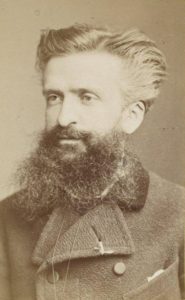
Unlike Mosca, Pareto or Michels, G. Le Bon was convinced that people are unequal anthropologically. In his work “Psychology of Peoples” (1895) Le Bon wrote: “…and yet science, as it has progressed, has proved the vanity of the theories of equality and shown that the mental gulf created by the past between individuals and races can only be filled up by the slowly accumulating action of heredity.”
At the same time, Le Bon insisted that racial differences are inevitably related to fundamental civilizational differences: “…there are great permanent laws which govern the general course of each civilization. The mental constitution of races proceeds from the most general, the most primordial of these permanent laws. The life of a people, its institutions, beliefs, and arts are but the visible expression of its invisible soul. For a people to transform its institutions, beliefs, and arts it must first transform its soul.”
Moving from analyzing peoples to analyzing political organization (“Psychology of Crowds”, 1897), Le Bon claimed that the majority of people can’t and don’t want to take up the labor of deliberate problem-solving due to the underdevelopment of their will and intellect, and that they act based on unconscious instincts. Moreover, this quality of theirs becomes of key importance when they gather in a crowd: “Under certain given circumstances… an agglomeration of individuals presents new characteristics very different from those of the individuals composing it. The sentiments and ideas of all the people in the gathering take one and the same direction, and their conscious personality vanishes… The gathering has thus become what… I will call an organized crowd… It forms a single being, and is subjected to the law of the mental unity of the crowds.”
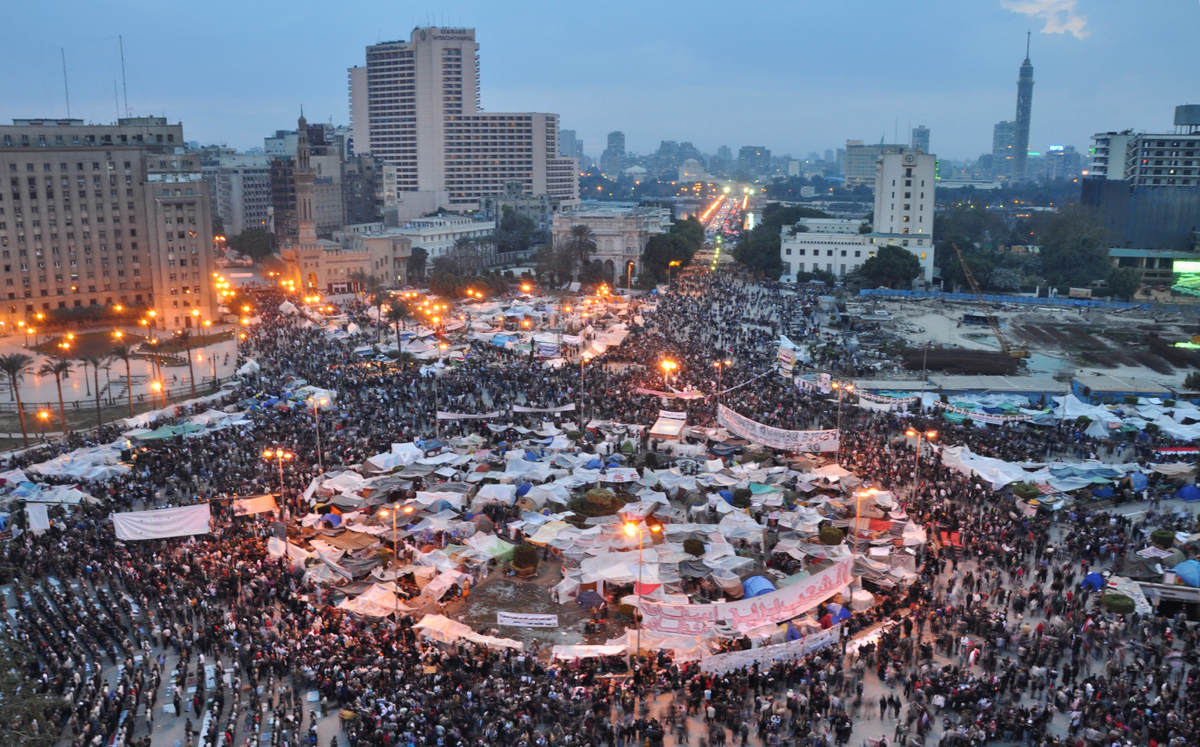
Le Bon emphasizes that this concerns not only the gatherings of plebs, but the gatherings of educated people as well, and that the growing power of the crowd – unlike the historical states, which were governed by aristocracy – is a sign of the decay of civilizations: “Civilizations as yet have only been created and directed by a small intellectual aristocracy, never by crowds… [The rule of the crowd] is always tantamount to a barbarian phase… The substitution of the unconscious action of the crowds for the conscious activity of individuals is one of the principal characteristics of the present age.”
Le Bon emphasizes numerous times that people in the crowd cease to view things rationality and their actions become not reasonable, their responsibility, independence, critical perception fall and, eventually, lose their personality itself. And this conclusion of his (as well as the thesis on anthropological inequality which includes not only different races and peoples, but the individuals within one people as well) was applied to its fullest in political practice the leaders of Italian and German fascism. As the witnesses testify, both of these works of Le Bon, especially “Psychology of Crowds”, have later become Mussolini and Hitler’s bible.
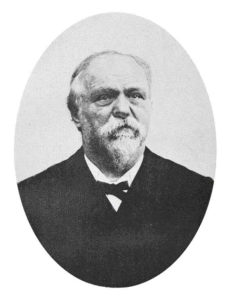
G. Sorel started his scientific and political journey as a Marxist, but soon departed from Marxism to anarcho-syndicalism similar to that of Proudhon. Later he started to rethink the socialist ideas and talking about them as reflections of “natural” irrationality of beliefs of what is good. Such a rethinking led Sorel to a conclusion made in “Reflections on Violence” (1906) that any social group is deeply ingrained with irrationality and can perceive the world as a whole only in a form of a completed myth.
According to Sorel, only such a myth, harmoniously combining the rational and the irrational, and creating a complete image of the desired reality, has the ability to mobilize the masses for historic deeds. Moreover, the idea of a good transformation of the world by violence is a necessary part of this myth: “The myth is the realization of hopes through action; but it doesn’t serve the doctrine, since doctrines and systems are in essence intellectual speculations, having little to do with the real struggle and the interests of the proletarians. Violence is a doctrine in action, pure willpower, not a speculative construct.” Sorel was convinced that the idea of “moral value of violence” against the evil world is the basis of the myth. Which is why “violence is the key power of historical transition“.
“Reflections on Violence” has also become Mussolini’s bible. He said that “…this master of syndicalism by his theories of revolutionary tactics has contributed most to form the discipline, energy and power of the fascist cohorts.”
The ruling elites of the early 20th century started forming their “conceptual war weaponry” to fight Marxist collectivism and ideologies of equality from this sum of sociological ideas. Meaning, they started creating different controllable “national-collectivist”, “racial-collectivist” and other conceptual and ideological alternatives.
Which ones? This we will discuss in the next article.
Source (for copy): https://eu.eot.su/?p=2857
This is the translation of the second article (first published in “Essence of Time” newspaper issue 53 on November 6, 2013) by Yury Byaly of a series on essence, birth and rise of fascism. Part 1: Marxism, imperialism and the justification of inequality.
We encourage republishing of our translations and articles, but ONLY with mentioning the original article page at eu.eot.su (link above).

